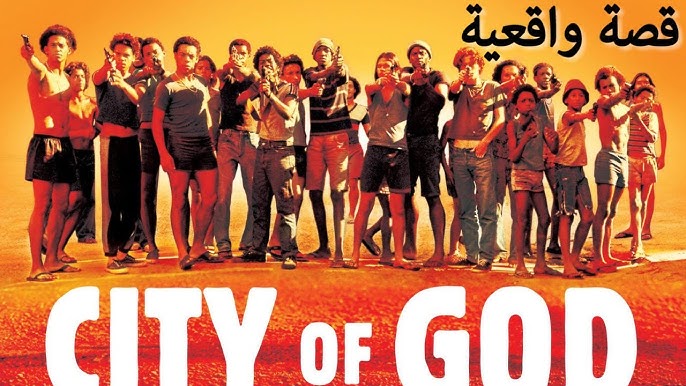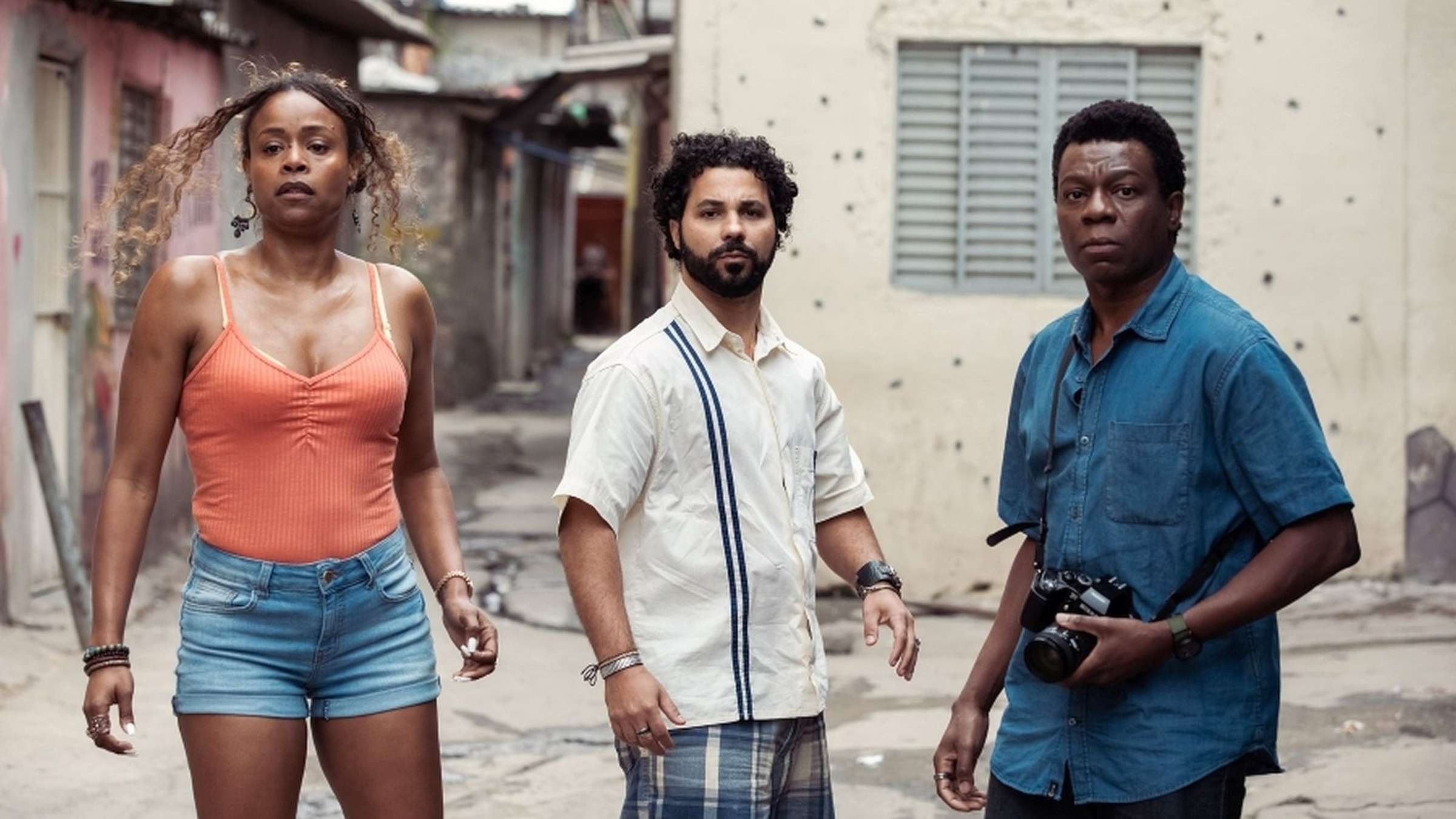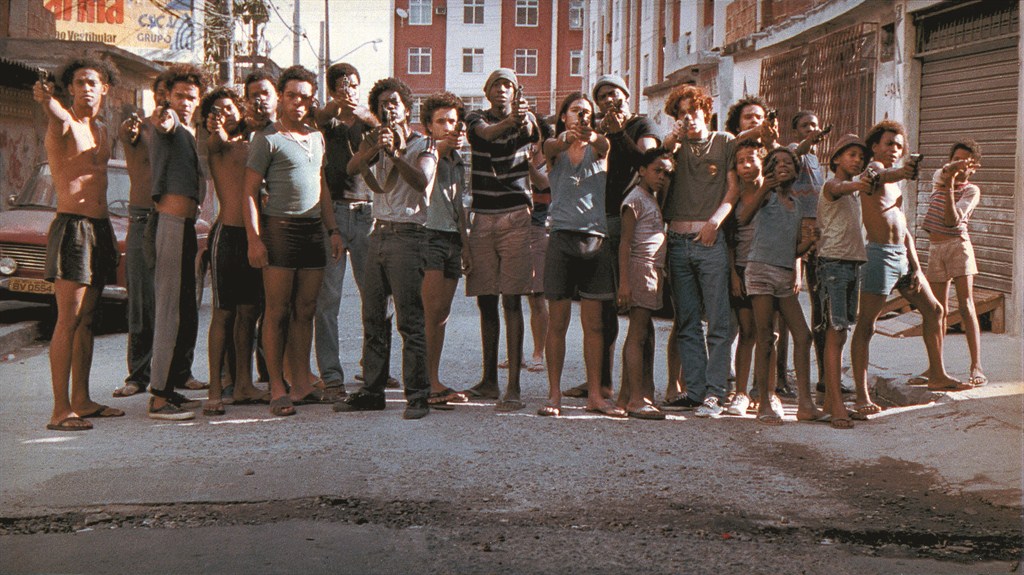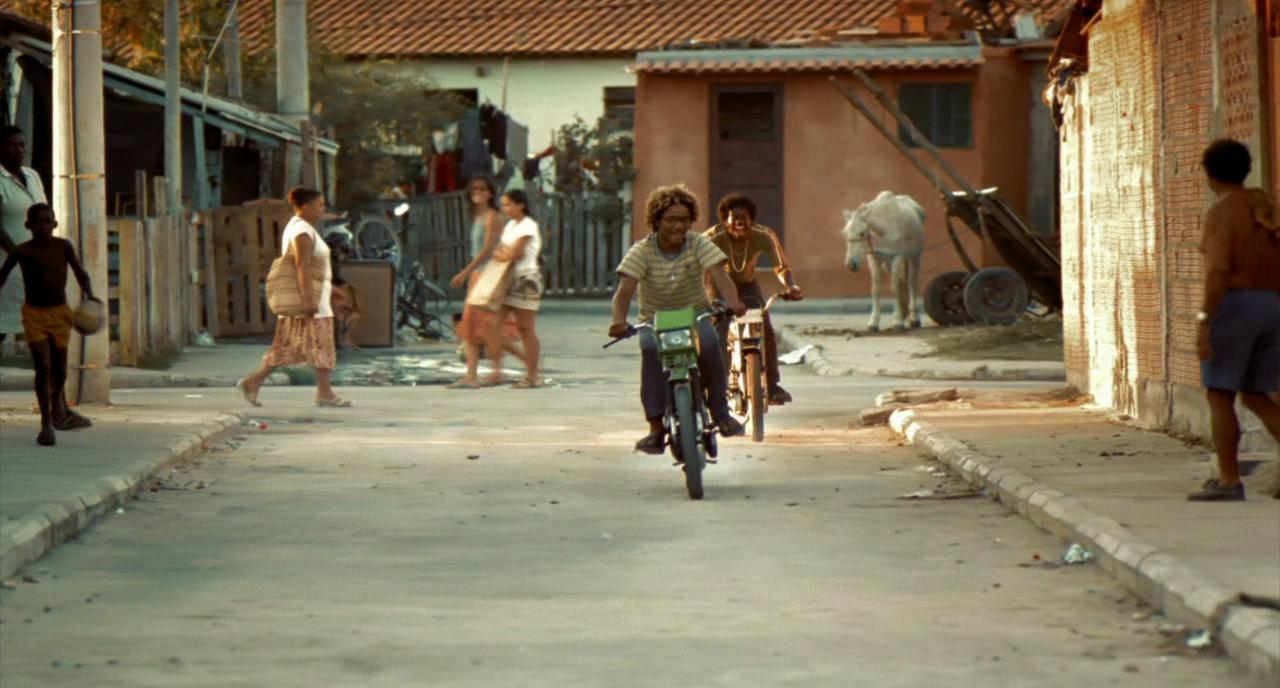🎬 City of God (2002)

City of God (Cidade de Deus, 2002) is a critically acclaimed Brazilian crime drama directed by Fernando Meirelles and co-directed by Kátia Lund. Based on the novel by Paulo Lins, the film presents a gritty, unflinching look at life in the favelas of Rio de Janeiro from the 1960s to the early 1980s. It is known for its dynamic storytelling, innovative cinematography, and powerful performances.
Plot Summary:

The film follows the intertwined lives of several characters in the City of God, a notorious favela characterized by poverty, violence, and crime. It is narrated by Rocket (Alexandre Rodrigues), a young aspiring photographer who documents the rise of gang violence in his neighborhood. The story begins with the origins of the favela and follows the lives of key figures, including the ruthless gang leader Li’l Zé (Leandro Firmino), who rises to power through violence and fear.

As Rocket tries to escape the cycle of crime and violence, the film showcases the harsh realities faced by the residents of the favela, highlighting themes of survival, ambition, and the impact of systemic poverty. The narrative spans multiple years and captures the transformation of the community, leading to a violent and tragic climax.
Themes:

- Violence and Power: The film explores how violence becomes a means of power and control within the favela, illustrating the desperation that drives individuals to crime.
- Social Inequality: City of God provides a stark portrayal of poverty and the systemic issues that perpetuate it, showcasing how socio-economic factors contribute to the cycle of violence.
- Youth and Aspiration: The film highlights the aspirations of its young characters, particularly Rocket, who dreams of becoming a photographer. Their hopes often clash with the harsh realities of their environment.
- Community and Survival: The relationships and dynamics within the favela reveal both solidarity and betrayal, emphasizing the complexities of community life in an environment dominated by crime.
Cinematic Style:
The film is noted for its energetic cinematography, with fast-paced editing and vibrant visuals that convey the chaotic atmosphere of the favela. Meirelles and Lund employ a mix of professional actors and non-professionals, adding authenticity to the performances. The use of handheld cameras and creative angles enhances the immersion, allowing viewers to experience the intensity of the characters’ lives.
Reception and Legacy:

City of God received widespread acclaim from critics and audiences alike, becoming a landmark in Brazilian cinema. It was nominated for four Academy Awards, including Best Cinematography and Best Film Editing. The film’s impact extends beyond entertainment, as it sparked discussions about social issues in Brazil and inspired a new wave of Latin American filmmaking.
The film has been praised for its realistic portrayal of life in the favelas and is often cited as one of the greatest films of the 21st century. It remains a vital work that combines powerful storytelling with a critique of systemic inequality, resonating with viewers worldwide.
Suggested videos for you:
The Haunting of Alice: A Finnish Soldier’s Revenge | SISU 2022
Suggested videos for you:
Meg 2 : Jaws of Terror: A Deadly Encounter in the Deep
Suggested videos for you:
The Turning Point of World War II: The Battle of Midway
Suggested videos for you:
Rambo: The Last Stand ( 2008 ) | Movie Action
Suggested videos for you:
Against the Odds: A Fractured Alliance
Suggested videos for you:
Latest Furiosa 2024 is a Fan Favorite
Suggested videos for you:
Betrayal at the Table: A Dinner Gone Wrong
Suggested videos for you:
When Human Blood Runs Dry, The Vampire Empire Begins to Crumble Daybreakers( 2009 )











